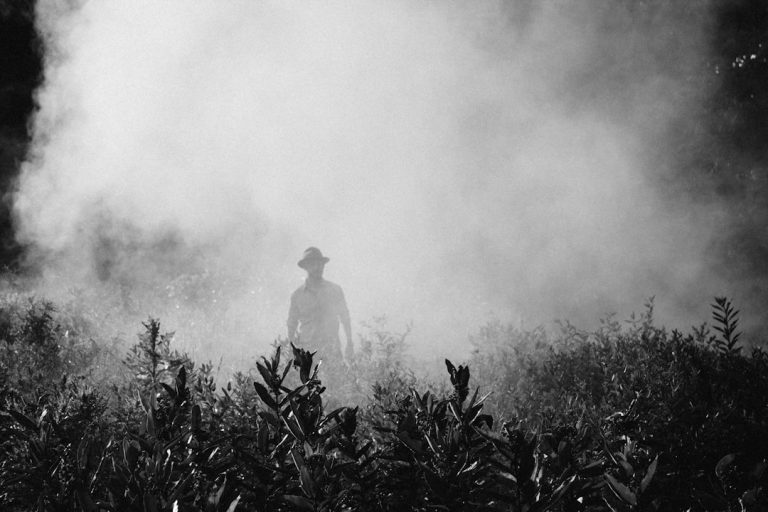
Shirley Jackson’s “The Lottery,” published in 1948, is a renowned and controversial short story in American literature. The narrative initially presents a seemingly ordinary small-town gathering but gradually reveals a disturbing annual ritual. Jackson employs irony and suspense to challenge readers’ perceptions of tradition and human nature.
The story’s transformation from apparent charm to horror forces readers to examine societal norms and the potential for violence within communities. Upon its release, “The Lottery” generated significant controversy due to its shocking conclusion, which contrasts sharply with the story’s idyllic setting and the characters’ cheerful demeanor. Jackson’s ability to craft a narrative that is both engaging and unsettling has solidified her position in literary history.
The story challenges readers’ expectations and serves as a reflection of humanity’s darker aspects. An analysis of “The Lottery” typically includes examination of its setting, characters, traditions, symbolism, and themes. The story’s critical reception and enduring impact on literature and popular culture are also subjects of study.
Over the decades, “The Lottery” has continued to provoke discussion and analysis, cementing its place as a significant work in the American literary canon.
Key Takeaways
- “The Lottery” by Shirley Jackson is a short story that explores the dark side of human nature and the dangers of blindly following tradition.
- The story is set in a small town on a sunny summer day, with characters who seem ordinary and friendly on the surface.
- The chilling tradition of the lottery involves a brutal ritual where one person in the town is chosen to be stoned to death.
- Symbolism and themes in the story include the dangers of conformity, the randomness of violence, and the hypocrisy of society.
- The shocking ending of the story reveals the true horror of the lottery and the complicity of the townspeople in the ritual.
Setting and Characters in The Lottery
The Facade of Tradition
The town’s annual lottery is presented as a cherished tradition, one that is eagerly anticipated by its residents. However, this seemingly serene environment belies the sinister events that are about to unfold. The contrast between the tranquil setting and the horrific climax serves to heighten the shock value of the story, illustrating how evil can exist in even the most ordinary places.
Characters as Social Commentary
The characters in “The Lottery” are emblematic of various societal roles and attitudes toward tradition. Tessie Hutchinson, the story’s protagonist, embodies the conflict between individualism and conformity. Initially portrayed as a carefree participant in the lottery, her demeanor shifts dramatically when she becomes the target of the town’s brutal ritual.
Exploring Human Nature
Other characters, such as Old Man Warner, represent blind adherence to tradition, dismissing any notion of change or questioning the lottery’s purpose. Through these characters, Jackson explores themes of complicity and moral ambiguity, illustrating how individuals can become desensitized to violence when it is cloaked in the guise of tradition. The interplay between these characters and their environment sets the stage for a harrowing examination of human nature.
The Chilling Tradition of the Lottery

At its core, “The Lottery” revolves around a chilling tradition that has been passed down through generations. The lottery itself is shrouded in mystery; its origins are never fully explained, leaving readers to ponder its purpose and significance. This lack of clarity adds to the story’s unsettling atmosphere, as it suggests that the townspeople participate in this ritual without fully understanding its implications.
The lottery serves as a grim reminder of how societies can perpetuate harmful practices simply because they have always been done that way. Jackson deftly critiques this blind adherence to tradition, highlighting how it can lead to moral decay and violence. As the story progresses, it becomes evident that the lottery is not merely a benign community event but rather a mechanism for social control and scapegoating.
The townspeople’s casual acceptance of violence reveals a disturbing willingness to sacrifice one of their own for the sake of maintaining order and tradition. This chilling reality raises questions about human nature and societal norms: how far will individuals go to conform? What lengths will they go to preserve their way of life?
Jackson’s portrayal of this tradition serves as a cautionary tale about the dangers of unquestioning loyalty to customs that may no longer serve a just purpose.
Symbolism and Themes in The Lottery
| Symbolism and Themes in The Lottery |
|---|
| Symbolism of the Lottery Box |
| Symbolism of the Black Box |
| Symbolism of Tradition |
| Theme of Blind Obedience |
| Theme of Violence and Cruelty |
| Theme of the Dangers of Conformity |
Jackson’s “The Lottery” is rich with symbolism that enhances its exploration of complex themes such as conformity, violence, and the nature of evil. One of the most prominent symbols is the black box used for the lottery drawing. This box represents tradition itself—worn and weathered from years of use yet still revered by the townspeople.
Its dilapidated state suggests that while traditions may lose their meaning over time, they are often upheld without question. The black box serves as a powerful metaphor for how societies cling to outdated practices, even when they no longer serve a moral or ethical purpose. Another significant theme in “The Lottery” is the idea of scapegoating.
The ritualistic violence inflicted upon Tessie Hutchinson highlights how communities can turn on individuals in times of crisis or uncertainty. By selecting one person to bear the brunt of collective anxiety, the townspeople attempt to absolve themselves of guilt while reinforcing their own social cohesion. This theme resonates with historical instances where societies have scapegoated marginalized groups during periods of turmoil.
Jackson’s narrative compels readers to reflect on their own complicity in societal violence and challenges them to consider how easily they might fall prey to similar dynamics.
The Shocking Ending of The Lottery
The climax of “The Lottery” delivers an unexpected jolt that leaves readers grappling with disbelief and horror. As Tessie Hutchinson realizes her fate—being stoned to death by her friends and family—the story takes a harrowing turn that starkly contrasts with its earlier tone. This shocking ending serves as a powerful indictment of human nature and societal norms, forcing readers to confront their own assumptions about morality and justice.
Jackson’s choice to depict such brutality within a familiar setting underscores her message: that evil can lurk beneath even the most benign facades. Moreover, Tessie’s desperate cries for fairness—“It isn’t fair!”—echo throughout the narrative, highlighting her transformation from an eager participant to a victim pleading for her life. This moment encapsulates the story’s central conflict between individual rights and communal traditions.
The townspeople’s willingness to sacrifice Tessie for the sake of maintaining their ritual raises profound ethical questions about loyalty, morality, and the cost of conformity. In this chilling conclusion, Jackson compels readers to reflect on their own values and consider how easily they might become complicit in acts of violence when cloaked in tradition.
Critical Reception and Controversy Surrounding The Lottery

Upon its publication in 1948, “The Lottery” sparked immediate outrage among readers who were unprepared for its shocking conclusion. Many were bewildered by Jackson’s portrayal of ordinary people engaging in such horrific acts, leading to widespread criticism and debate about its themes and implications. Some readers interpreted the story as an indictment of societal norms that perpetuate violence under the guise of tradition, while others viewed it as an unsettling commentary on human nature itself.
This divisive reception highlighted how deeply ingrained cultural beliefs can shape interpretations of literature. In subsequent years, “The Lottery” has been re-evaluated through various critical lenses, including feminist and psychological perspectives. Scholars have examined how Jackson’s portrayal of gender roles within the story reflects broader societal attitudes toward women during her time.
Additionally, discussions surrounding moral ambiguity and complicity have gained traction as readers grapple with their own responses to the narrative’s chilling events. Despite—or perhaps because of—its controversial reception, “The Lottery” has solidified its place as a cornerstone of American literature, prompting ongoing discussions about tradition, violence, and human nature.
The Legacy of The Lottery: Impact and Influence on Literature
“The Lottery” has left an indelible mark on literature and popular culture since its publication, influencing countless writers and artists who seek to explore similar themes of conformity and societal violence. Its haunting narrative structure and shocking conclusion have inspired adaptations across various media, including film, theater, and graphic novels. The story’s ability to provoke thought and discussion continues to resonate with contemporary audiences grappling with issues related to tradition and morality in an increasingly complex world.
Moreover, Jackson’s work has paved the way for future authors who wish to challenge societal norms through their storytelling. Writers such as Margaret Atwood and Neil Gaiman have cited “The Lottery” as an influence on their own explorations of dystopian themes and human behavior. The story’s legacy endures not only because of its unsettling content but also due to its capacity to provoke critical reflection on our own societal practices.
As readers continue to engage with Jackson’s narrative, “The Lottery” remains a powerful reminder of literature’s ability to illuminate uncomfortable truths about humanity and challenge us to confront our own complicity in systems of violence and oppression.
If you’re interested in exploring the universal themes present in Shirley Jackson’s “The Lottery,” you might find the article “Universal Theme in Literature” insightful. This article delves into how common themes, such as the human condition, societal norms, and the consequences of tradition, are woven into various literary works, offering a broader understanding of how these themes play a crucial role in storytelling. You can read more about it by visiting Universal Theme in Literature. This could provide a deeper appreciation of the themes Jackson explores in her chilling tale.
FAQs
What is “The Lottery” by Shirley Jackson about?
“The Lottery” is a short story by Shirley Jackson that tells the story of a small town that holds an annual lottery in which one person is chosen to be stoned to death.
When was “The Lottery” by Shirley Jackson published?
“The Lottery” was first published in The New Yorker magazine on June 26, 1948.
What is the theme of “The Lottery”?
The theme of “The Lottery” revolves around the dangers of blindly following tradition and the potential for cruelty and violence within a seemingly peaceful community.
Is “The Lottery” based on a true story?
No, “The Lottery” is a work of fiction and is not based on a true story. Shirley Jackson created the story as a commentary on the darker aspects of human nature and society.
Why is “The Lottery” by Shirley Jackson considered a controversial story?
“The Lottery” is considered controversial due to its depiction of violence and the shocking revelation of the town’s annual ritual. It has sparked discussions about tradition, conformity, and the darker side of human behavior.






